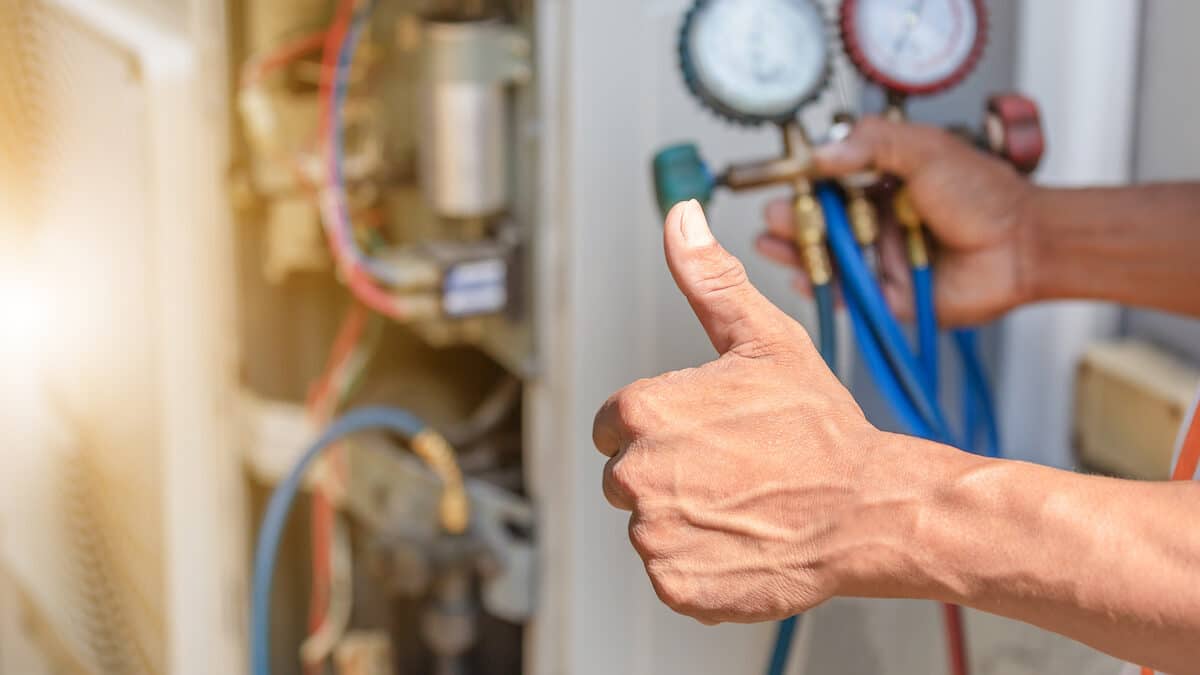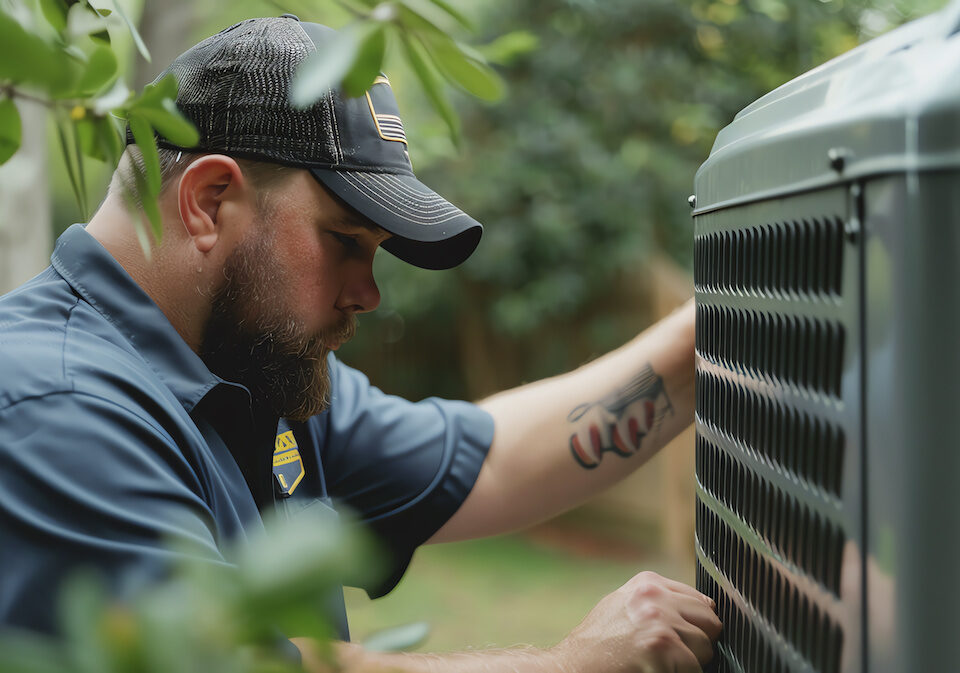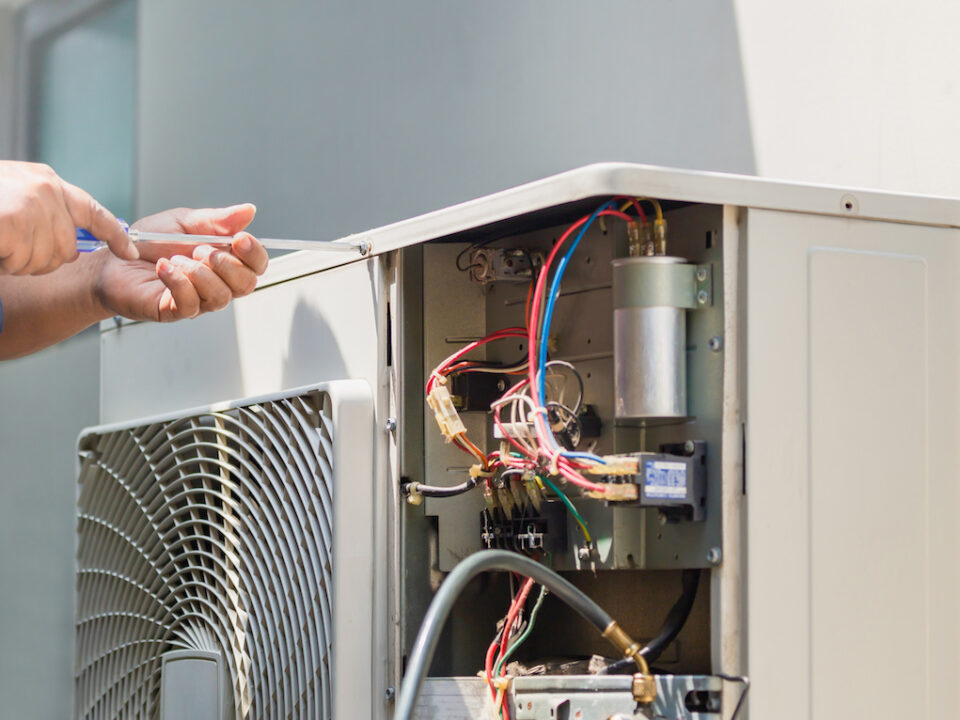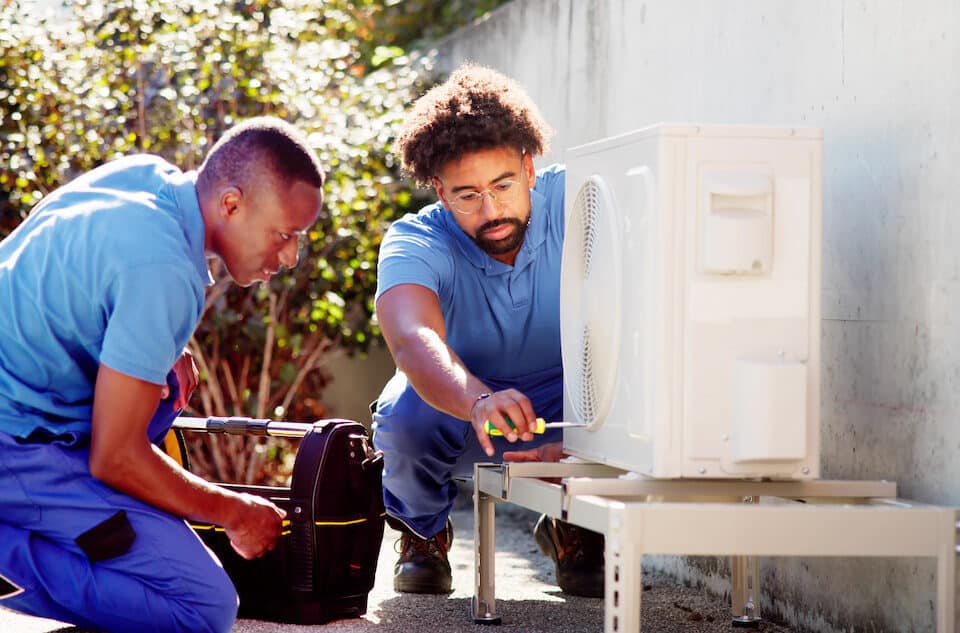Most Common HVAC Repairs and How to Avoid Them

The best thing you can do for your home or building’s HVAC system is to invest in a preventative maintenance program. When you aren’t having regular, routine maintenance performed, minor HVAC problems become major repair expenses – and system failure becomes much more likely.
Your HVAC system does more than keep temperatures consistent. It can impact productivity levels, safety, and energy bills – not to mention comfort and happiness. Adopting a preventative maintenance program is critical to ensuring your system functions properly and efficiently.
When in doubt, it’s best to call a professional who can help you find and fix any issues with your HVAC systems. At Trust Heating and Air, we are always transparent and trustworthy and will let you know exactly what we find and how we recommend you move forward.
But, here are some things to look out for.
Loud or Clanging Noises
An air conditioner or heater does make some noise under normal circumstances. However, if you hear loud or unusual noises, it may be time to call a professional.
Dampers help control this by reducing airflow in one line and allowing more conditioned air to flow to other areas. In instances where some rooms cool or heat faster than others, it may be because the dampers are not balanced.
There are many things that could lead to the constant racket during AC operation, but loose or faulty running parts are the main culprits. As it is not easy to identify the exact cause of the problem, your best bet for solving the issue is to hire an experienced AC technician.
By understanding where problems might originate in your HVAC system, you can take proactive measures to ensure it is in optimal working condition and avoid major problems before they occur.
Dirty Air Filters
AC air filters stop dust and other airborne dirt particles from entering your air conditioning system. This allows the proper flow of air. Over time, these filters become clogged with dirt and will need to be cleaned or replaced, depending on the type of filter that your AC unit uses.
Dirty and worn filters can force your air conditioning unit to work harder, which increases energy costs and reduces the life of your system. Owing to poor air circulation, your AC will run harder than it should to keep you cool and comfortable. This will cause energy wastage, which will translate to higher energy bills. Cleaning or changing dirty air filters as per the equipment manufacturer’s specifications will help to ensure the proper flow of air within your AC system and also lead to better indoor air quality.
Frequent monitoring and quarterly replacement of your filters will ensure optimal HVAC system performance. It will also improve HVAC function and air quality by keeping dust, allergens, and other air pollutants at bay.
Low Refrigerant Levels
Your residential air conditioner relies on refrigerant to draw heat from the interiors of your house. Afterward, it will then dissipate it to the outdoor environment.
Contained within the coils of an HVAC system, refrigerants cool and dehumidify indoor air. When your unit doesn’t have enough refrigerant, it can’t do its job and the air it produces is not very cold. This issue not only leaves the inside of your home too hot (with uncomfortable inhabitants), but it also causes the condenser to work overtime, leading to additional – and more expensive – system problems.
Although your home’s AC system isn’t designed to lose refrigerant, it may lose the fluid if leaks develop within the system. When this happens, your cooling equipment will lose its usual cooling efficiency. To fix the issue, you will have to ask an AC repair specialist to detect and seal leak spots and then regas your unit.
If you simply add more refrigerant without checking the leaks, the new refrigerant will also leak out of your AC system. The best way to avoid having a low refrigerant level is to have your equipment inspected regularly by a professional. Between visits that the professional makes to your home, watch out for signs of refrigerant loss.
When In Doubt Call In a Professional
Although most modern AC models are designed to operate almost silently, all air conditioners produce some noise when running. However, this noise is kept at a minimum when they are running at their best.
If something seems weird or off it most likely is. If you’ve checked the filters and everything seems to be fine it’s best to call in a professional.



